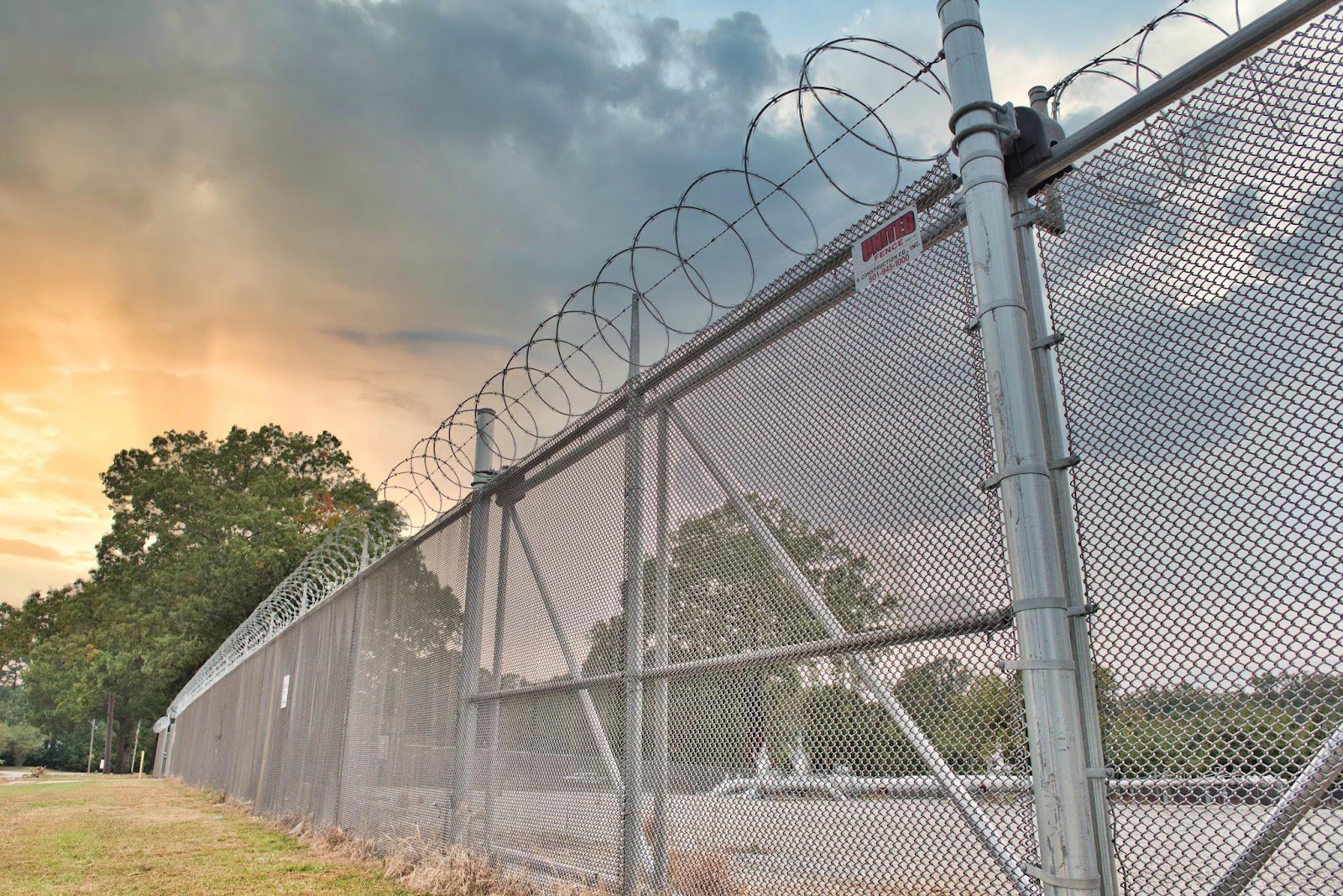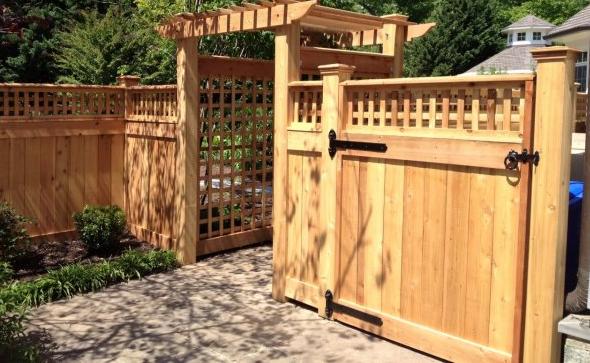All Categories
Featured
If you're thinking about setting up a fencing around your building, comprehending the permit requirements in your area is crucial. While constructing a fence could appear like an easy do it yourself project, numerous guidelines might control its building depending upon where you live. Failing to obtain the correct authorizations can result in penalties, penalties, or perhaps having to get rid of the fencing altogether. In this overview, we'll damage down the different licenses you may need to install a fence and exactly how to ensure your job stays certified with neighborhood laws.
Why Are Allows Essential for Fencing Installment? Authorizations are needed to make certain that the fence you build adheres to regional structure codes, zoning guidelines, and safety and security criteria. They ensure that the fence will not obstruct utilities, traffic flow, or create risks for pedestrians.
![]()
Sorts Of Permits You May Requirement. Structure License. A structure authorization is the most typical requirement for mounting a fence. If your fence exceeds a particular elevation (normally around 6 feet), you might need to acquire a structure license.
Zoning Permit. Zoning legislations regulate land use in your location, and they usually regulate where fences can be installed, in addition to how tall they can be. A zoning authorization makes certain that your fencing abides by these policies. For instance, your fence might require to be held up a particular distance from pathways or home lines. Zoning laws can differ by neighborhood, so it's important to inspect the specific regulations that relate to your place.
Homeowners Association (HOA) Authorization. You might need authorization prior to mounting a fence if your building is component of a homeowners association. HOAs frequently have strict rules regarding the type, style, and materials made use of for fences to preserve a consistent look throughout the neighborhood. The HOA might require you to send in-depth strategies or request authorization before installment. Make sure you follow these standards to stay clear of potential penalties or penalties.
Specialty Permits. In some situations, you may require specialized permits based upon the location of your residential or commercial property or the nature of your fence. If your property is in a flooding area, you may need added authorizations to make certain that your fence does not obstruct water drainage or water circulation. If you plan to develop a fencing near an eco secured area, you may need an unique license to abide with ecological regulations.
![]()
Utility Easements and Energy Company Approvals. Prior to installing a fence, you should check if your home has an easement. Developing a fence within an easement can interfere with utility upkeep or damage underground lines.
Just How to Identify Which Permits You Need. Talk To Neighborhood Authorities. The initial step in determining the licenses required is to call your local building division or zoning workplace. They can provide particular information about what licenses are necessary for your location. Several cities have on the internet resources or portals where you can check the requirements or also obtain a permit online.
Seek Advice From a Professional Fence Professional. A neighborhood fencing service provider is often accustomed to the permit process and neighborhood regulations. They can assist you navigate the requirements and make certain that your project is compliant. Numerous professionals also take care of the license application procedure on your part, saving you time and initiative.
Evaluation Your Area's HOA Standards. If you live in an area regulated by an HOA, make certain to examine their guidelines before obtaining any licenses. The HOA may call for certain designs, products, or height limitations for fencings within the area. Submit your strategies to them for authorization before proceeding.
![]()
Effects of Not Acquiring an Authorization. Setting up a fencing without the required permits can result in serious repercussions. You may encounter fines, be bought to get rid of the fence, or be called for to redesign the setup to satisfy code demands. In addition, selling your home might be complicated if the fence doesn't fulfill local policies. Prospective buyers might wait to buy a property with an unpermitted fence, especially if it's in offense of zoning regulations.
Verdict. Prior to setting up a fencing on your home, make certain you comprehend the neighborhood policies and obtain any type of essential permits. Structure permits, zoning authorizations, HOA authorizations, and specialty allows all play a critical duty in ensuring that your fence is safe, legal, and compliant.
Why Are Allows Essential for Fencing Installment? Authorizations are needed to make certain that the fence you build adheres to regional structure codes, zoning guidelines, and safety and security criteria. They ensure that the fence will not obstruct utilities, traffic flow, or create risks for pedestrians.

Sorts Of Permits You May Requirement. Structure License. A structure authorization is the most typical requirement for mounting a fence. If your fence exceeds a particular elevation (normally around 6 feet), you might need to acquire a structure license.
Zoning Permit. Zoning legislations regulate land use in your location, and they usually regulate where fences can be installed, in addition to how tall they can be. A zoning authorization makes certain that your fencing abides by these policies. For instance, your fence might require to be held up a particular distance from pathways or home lines. Zoning laws can differ by neighborhood, so it's important to inspect the specific regulations that relate to your place.
Homeowners Association (HOA) Authorization. You might need authorization prior to mounting a fence if your building is component of a homeowners association. HOAs frequently have strict rules regarding the type, style, and materials made use of for fences to preserve a consistent look throughout the neighborhood. The HOA might require you to send in-depth strategies or request authorization before installment. Make sure you follow these standards to stay clear of potential penalties or penalties.
Specialty Permits. In some situations, you may require specialized permits based upon the location of your residential or commercial property or the nature of your fence. If your property is in a flooding area, you may need added authorizations to make certain that your fence does not obstruct water drainage or water circulation. If you plan to develop a fencing near an eco secured area, you may need an unique license to abide with ecological regulations.

Utility Easements and Energy Company Approvals. Prior to installing a fence, you should check if your home has an easement. Developing a fence within an easement can interfere with utility upkeep or damage underground lines.
Just How to Identify Which Permits You Need. Talk To Neighborhood Authorities. The initial step in determining the licenses required is to call your local building division or zoning workplace. They can provide particular information about what licenses are necessary for your location. Several cities have on the internet resources or portals where you can check the requirements or also obtain a permit online.
Seek Advice From a Professional Fence Professional. A neighborhood fencing service provider is often accustomed to the permit process and neighborhood regulations. They can assist you navigate the requirements and make certain that your project is compliant. Numerous professionals also take care of the license application procedure on your part, saving you time and initiative.
Evaluation Your Area's HOA Standards. If you live in an area regulated by an HOA, make certain to examine their guidelines before obtaining any licenses. The HOA may call for certain designs, products, or height limitations for fencings within the area. Submit your strategies to them for authorization before proceeding.

Effects of Not Acquiring an Authorization. Setting up a fencing without the required permits can result in serious repercussions. You may encounter fines, be bought to get rid of the fence, or be called for to redesign the setup to satisfy code demands. In addition, selling your home might be complicated if the fence doesn't fulfill local policies. Prospective buyers might wait to buy a property with an unpermitted fence, especially if it's in offense of zoning regulations.
Verdict. Prior to setting up a fencing on your home, make certain you comprehend the neighborhood policies and obtain any type of essential permits. Structure permits, zoning authorizations, HOA authorizations, and specialty allows all play a critical duty in ensuring that your fence is safe, legal, and compliant.
Latest Posts
Exploring Prohibition-Era Cocktails at Twenties Restaurant’s Bar
Published Dec 18, 24
1 min read
What Permits Are Required for Setting Up a Fence in My Location?
Published Dec 18, 24
0 min read
Discover Affordable Nissan Models Near You
Published Dec 18, 24
1 min read